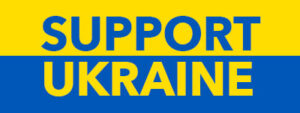
Passover commemorates the exodus of Jews from Egypt over 3000 years ago. The timeless and universal message of this holiday is that slaves can go free, and the future can be better than the present. Passover, or Pesach, as it is called in Hebrew, is truly a festival of freedom.
Passover begins in the middle of the Hebrew month of Nisan, the first month on the Jewish liturgical calendar. It lasts for seven days in Israel, eight in the diaspora. On the Gregorian calendar, Passover generally corresponds with late March or early April.
This year, 2019, Passover begins on Friday evening April 19th, which coincides with Good Friday on the Gregorian calendar. Passover ends Saturday evening, April 27th, the day before Easter Sunday on the Julian calendar.
Passover is also known as the Feast of Unleavened Bread. In preparing for Pesach, Jews clean their homes and vehicles, removing every trace of leaven (or chametz, in Hebrew). This act symbolizes the haste with which the Jews left Egypt. They did not even have time to let the bread rise.
It is also a symbolic purification ritual— removing the puffiness of arrogance and pride, which separates us from one another, and our Creator.
The eating of unleavened bread, called matzo, during this time carries very important symbolism for Jews. The scrupulous ritual avoidance of impurity, symbolized by leavening, helps them to observe the proper spirit of this festival.
The Exodus represents the awakening of a higher faculty which will lead to universal awakening and freedom from restriction. Jews will continue to recount the Exodus story each year at Pesach until this destiny is finally realized, on behalf of humanity as a whole.
In the 20th century, Jews in the former Soviet Union considered living in the Soviet empire of evil the same as living in slavery in Egypt. In Soviet Ukraine, as elsewhere in the soviet union, it was extremely difficult, even dangerous, to keep kosher.
One of the biggest challenges for Soviet Jews was buying matzo for Passover. Initially, the Soviet state tolerated the baking and selling of matzo. But as religious repression grew, that tolerance didn’t last long.
Afraid of being caught by the KGB buying the forbidden matzo, Jews began to establish secret matzo bakeries in private homes. Hand-built brick ovens, heated by wood, operated during the night. Every morning the ovens were thoroughly cleaned to remove any evidence of matzo baking from suspicious KGB eyes.
The distribution of matzo was equally dangerous. It was not unheard of for Jews to be arrested and sentenced to hard labour in prison camps for the crime of baking or transporting matzo. Even in the last years of communism, during glasnost, matzo was still packed in cartons labelled as butter or other food products to disguise them during transport.
Pesach is one of the most important holidays for religious Jews, and even for less observant Jews. So in Soviet Ukraine, Jews observed Passover as best they could—and very carefully. For example, the first and second Pesach seders, or dinners, were for families only. No strangers were ever invited for fear of inadvertently letting in a KGB informer. To do so was to risk prison, or worse.
After the collapse of communism, life improved considerably for Jews in Ukraine. Today a Jewish bakery at a major synagogue in Kyiv bakes matzo following strict kosher protocols, and ships it all over the world. Another Jewish bakery in Dnipro, near the war zone, is also a major exporter of matzo … to Europe, the Americas and even Israel … although recently shipments to Russia have stopped because of the war.
Over the past five years, Russia’s war on Ukraine has brought extreme hardship to Jews and non-Jews alike. Those difficulties aside, however, it is no longer dangerous to celebrate Passover in modern day Ukraine. It is safe once again, and commonplace, to bake, buy, or sell matzo, and to import it from outside the country. Kosher vacations are offered in such places as Uzhorod and Lviv. In the Carpathian mountains, a resort offers a Passover vacation for Orthodox Jewish families, including the central Seder conducted under the guidance of an experienced rabbi and cantor.
Today, Jews in Ukraine celebrate Passover freely, and they stand shoulder to shoulder with their non-Jewish Ukrainian friends and neighbours … united in their wish to live in a world where peace, prosperity and mutual respect prevail. Do not believe anyone who says otherwise.
This is Pawlina … wishing our Jewish listeners a “kosher and joyous Passover.” Chag pesach semeach!
And until next time, Shalom!
Ukrainian Jewish Heritage is brought to you by The Ukrainian Jewish Encounter based in Toronto, Ontario. To find out more visit their website (here) and follow them on Facebook and Twitter.
![]()
Tune in to the Vancouver edition of Nash Holos Saturdays at 6pm PST on CHMB Vancouver AM1320 or streaming online. As well, the Nanaimo edition airs on Wednesdays from 11am-1pm on air at 101.7FM or online at CHLY Radio Malaspina. As well the International edition airs in over 20 countries on AM, FM, shortwave and satellite radio via PCJ Radio International.


